Disclaimer: Yes, I know that the Magic lost in the Finals. Stan Van Gundy and Dwight Howard deserve a lot of blame for that, but in truth, they just weren’t as good as the Lakers. They also weren’t as good as the Celtics or Cavs, but they still won because of their unique offense. I guess they got unlucky, or the Lakers were that much better than all of the teams that the Magic had conquered so far. Anyway, Because Orlando’s offense was so interesting and effective, I felt that it deserved to be studied, so here ya go. – Will
Every couple of years, every sport is faced with something that changes the game, and the way teams react to it will dictate how they will fare in the future. One of the primary game-changers in football was the Spread Offense. The Spread is employed when teams come out in the shotgun, mostly employing 3, 4, or 5 reciever sets. This offense allows for fluidity and many offensive options, and has served as the basis for some of the most influential and inventive offenses in football, Urban Meyer’s offenses at Utah and Florida that utilized the mobility and decision making of Alex Smith and Tim Tebow, Rich Rodriguez’s Spread Option at West Virginia, Hawaii’s offense that made Colt Brennan the most successful QB in the history of NCAA Football, Texas Tech’s “Air Raid” offense used to beat Texas this year, the Wildcat offense used by the Dolphins, and the now-defunct A-11 offense that you probably read a couple of articles about this year. The Spread Offense is (pardon the pun) spreading, and has to be recognized and planned for by defenses. Playing with the spread involves increasing a team’s overall speed, because they have to be able to take advantage of the vertical seams that are created in the defense. Defending the spread also requires increased speed, in order to fill these channels. Disparities in team speed can be disastrous for the slower team, as could be seen in the case of the 2007 BCS Championship Game, where the zippy Florida Gators trounced the hulking favorites, Ohio State, 41-14.
One may ask, when reading that first section, “What the hell does this have to do with the Orlando Magic, Will? How does a football offense relate to the offense the Magic employ?” Patience, dear reader. As a Celtics fan, I was hugely frustrated by the way Orlando played basketball. They didn’t attempt to duplicate the Celtic’s excellent ball movement, and Ray Allen’s amazing ability to come off screens, or Kendrick Perkins’ solid post moves. No, they were content to feed the ball to Dwight, have the defense collapse around him, and have him kick it out to an open Rashard Lewis/Hedo Turkoglu/Rafer Alston/Mickael Pietrus/Courtney Lee/J.J. Redick for an open three, which inevitably dropped in. Sure, Hedo and Lewis would occasionally hit midrange jumpers, and Pietrus would throw down a dunk or two, but most of the Magic’s O was built upon the three. On the inside, Perkins defended Howard fairly well, but oftentimes when Dwight didn’t get doubled he wouldn’t deal with the semantics of a skyhook, an up an under, or any other low post moves. He’d just dunk. However, his presence is even more important on the defensive end of the court, and he ran away with the blocks title and was a beast on the boards. Howard’s defensive domination allowed the Magic to play Rashard Lewis at 4 and Hedo Turkoglu at 3, who aren’t exactly Bill Walton and Scottie Pippen on the defensive end. ‘Shard and Turkoglu make up for their defensive uselessness by being great three point shooters.
As unique as this 4-out 1-in offensive system is to the NBA, it, like the spread offense, rose to the pros after being used successfully in college. It is a distant cousin of Memphis’s Dribble-Drive offense, which you can read about here. Pittsburgh and Villanova, who met in the Elite Eight this year, were probably the most well-known of those that used the 4-out 1-in, and they both used it very effectively. Pitt in particular had very similar personnel to the Magic, with a dominating inside presence, (Dejuan Blair) and a stable of solid perimeter shooters (Sam Young, Levance Fields, Brad Wanamaker, Jermaine Dixon, Ashton Gibbs.) Anyway, there are a few reasons I made the comparison between Orlando’s offense and football’s spread offense. One reason is that they are ostensibly similar, as they both spread out the defense and take advantage of the increased space. Another is that they have a similar etymology, coming up from the college ranks to be used in the pros. A third is that they both require very specific personnel. The spread requires speedy receivers, and a quarterback who can be both a field general and a mobile threat, a la Tebow, Brennan (sorta), and Graham Harrell. The Magic’s offense also requires 3 or 4 three point threats on the court at once, and a defensively dominating center who demands a double team. Because Orlando was so effective in the Conference Semis and Conference Finals with this offense, when I was thinking of ways to improve it, I couldn’t come up with any strategic improvements, but only better players to pull off the roles. So I decided to share my idea of what a perfect team running Orlando’s 4-out 1-in spread offense would look like. I have figured out everyone’s role and found a player who could play it better. Of course, I stayed under the Magic’s current salary, $68,713,618. I also tried to make it realistic, as there’s no way that you could have a team of all-stars, even if their salaries worked out. People would start bitching about playing time and fighting over groupies, and it would just be a mess. (I’m not including Jameer Nelson in this, as they played much better without him during the playoffs.)
STARTERS
Center: Athletic Freak, Defensive Force. Original: Dwight Howard. Replacement: Dwight Howard.
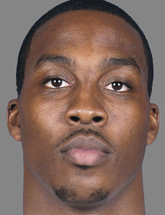
Salary: $13,758,000
I know that I didn’t replace Dwight Howard. I can’t. He’s the only Center who can play in this role. Yes, Howard is a flawed offensive player. He has no effective post moves, and he’s a pretty bad passer, in a system that would allow a center to rack up assists. However, he protects the rim like no other, and still has lots of room to improve. If I were to pick anyone else, it might be Pau, but I don’t think that he has the rebounding and defensive ability needed by Orlando’s system. Kevin Mchale is newly unemployed, maybe he could give Dwight a better low-post education than he’s currently getting from Patrick Ewing.
Power Forward: Versatile Matchup Nightmare. Original: Rashard Lewis. Replacement: Al Harrington.
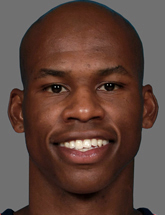
Salary: $9,226,250
Yes, when Rashard is hot, he is HOT. However, Harrington is a very good shooter, a more versatile scorer, can actually dribble, and is a better rebounder than Lewis. He will, like Lewis, cause huge issues for any team that doesn’t have Kevin Garnett (the only PF who could keep up with either of them) on it. Also, he isn’t as prone to long cold streaks, like how Rashard bottled it during the Finals.
Small Forward: Clutch Three-Point Shooter / Driving Threat. Original: Hedo Turkoglu. Replacement: Carmelo Anthony.
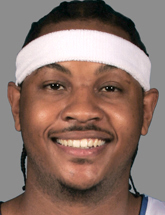
Salary: $14,410,581
Hedo got the ball when it mattered this year, and no one is better in the clutch as a perimeter shooter than ‘Melo. He is a better interior scorer than Hedo, and a much stronger rebounder and defender. Carmelo could also fill in at Power Forward in this system, to give the team more flexibility to either involve himself or Harrington with the second unit.
Shooting Guard: Playin’ D, Shootin’ Threes Original: Mickael Pietrus. Replacement: Trevor Ariza
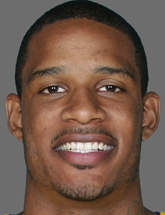
Salary: $3,100,000
I know that Courtney Lee was the real starter, but the Magic were more effective with Pietrus in. Replacing him with Ariza takes away a little slashing ability from the team, but Ariza is just as good a three point shooter, and he doesn’t rely on the corner three as much as Pietrus. The Magic had to use Pietrus to cover Kobe, and quite frankly, Ariza is a much better lockdown defender. Ariza is listed as a SF/SG, and he has the speed to stay with pretty much every 2 guard in the league, so moving down a position wouldn’t be a problem, and if there was an injury situation, he could play at SF when needed.
Point Guard: Servicable, Doesn’t Try To Run The Show. Original: Rafer Alston. Replacement: Mario Chalmers.
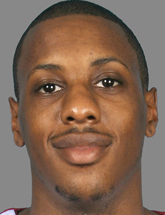
Salary: $700,000
Sure, Rafer took the ball up and passed the ball around a little bit, but he wasn’t the star of the offense, and the offense didn’t depend upon him as much as other offenses depend on their point guard. Chris Paul, Rajon Rondo, Derrick Rose, and Deron Williams, the NBA’s premier young PGs, probably couldn’t deal with this role, as they would want to dribble, kick, and make layups. Mario already plays second fiddle to Dwayne Wade in Miami, so I think that he’d be able to deal with not being in charge of the offense. Also, he averaged two steals a game this season, and with a great shot blocker behind him, he’ll have even more opportunity to take risks with his perimeter defense, which will lead to fast breaks and easy points.
BENCH
SG/SF who can be a starter Original: Courtney Lee. Replacement: Raja Bell.
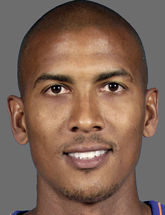
Salary: $5,000,000
Raja is, like Lee, a good defender who isn’t afraid to heave it from deep. He’s a veteran of Phoenix’s three-heavy “Seven Seonds or Less” offense and would be a veteran presence in the locker room. Can start in place of Ariza.
Defensive C Original: Marcin Gortat. Replacement: Ronny Turiaf.
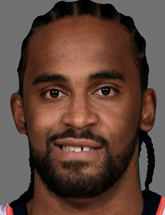
Salary: $4,500,000
Turiaf has some of the best blocking stats in the league, even though he only gets about 20 minutes of playing time per game. Can protect the rim in Howard’s absence.
Veteran PG Original: Anthony Johnson. Replacement: Kevin Ollie.
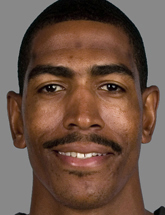
Salary: $1,262,275
A veteran presence who doesn’t get cute and take a ton of shots, which would hurt the team more than help it. Cough Sam Cassel Cough.
Straight-Up Shooter SG Original: J.J. Redick. Replacement: Roger Mason Jr.
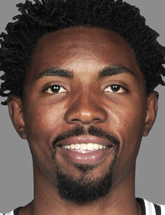
Salary: $3,500,000
Mason Jr. was originally intended to play in this role with the Spurs, but Ginobli got hurt and he had to step in as a starter for a while, and made a bunch of threes for them. A better shooter and player than Redick, and perfect for this system.
Veteran Big Man Original: Tony Battie. Replacement: Theo Ratliff.
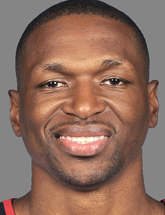
Salary: $1,262,275
Used to be one of the best shot blockers in the game, can mentor Howard and Turiaf in order to make them even more dominant on D. Can fill in at Center in case of foul trouble.
11th man PG Original: Tyronn Lue. Replacement: Chris Quinn.
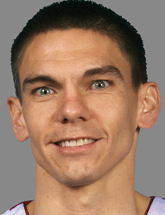
Salary: $972,581
OK, the 11th and 12th man don’t really matter. Sure, you want them to be able to play in case of injury, but their real job is to jump around on the bench and look funny. Quinn is an okay basketball player, but mostly, he’s a funny-looking white guy.
12th man PF Original: Adonal Foyle. Replacement: Brian Scalabrine

Salary: $3,206,897
Speaking of funny-looking white guys… Scal’s the most hilarious. Also, surprisingly, he’s a fairly good perimeter shooter.
TOTAL SALARY: $63,998,859
ORIGINAL SALARY: $68,713,618
I just made the team better, and cut about $5 million in salary! someone should make me a GM. Thanks for reading, and I welcome debate in the comments.
Salaries and Pictures from ESPN and Yahoo! Sports.
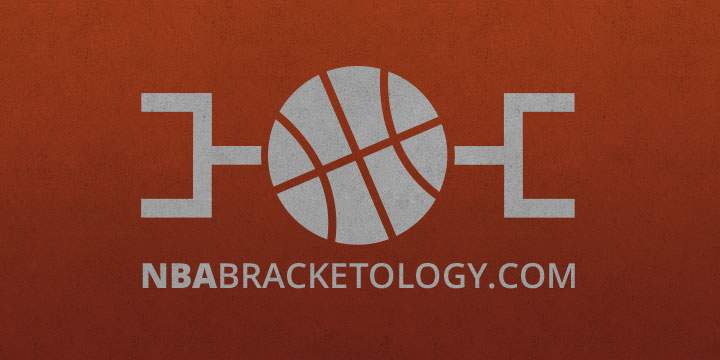
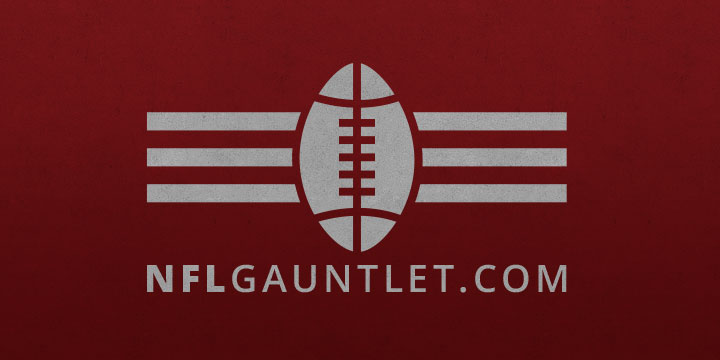

goodluck taking Melo out of Denver after last year. He wants to stay. He knows they are Championship Caliber. Minus 2 turnovers that series could have easily gone the other way. The team you put together is Really a good idea though. Other than Melo the team actually Looks plausible
Love the work you did. Only thing that could be more fun would be a “Best team that you managed to make using the ESPN NBA Trade Machine”!
what the fuzz is this bluesheep???
kiddin,
great work, except for the Chalmer's guy who choked on one
critical moment in one of the past regular season games,
can't have that.
go take Ramon Sessions
The Magic were better without Jameer??? They went 36-10 before he got injured and just 23-13 after. If Jameer had not been injured and continued to play as he did before he was injured, Orlando is celebrating their first championship right now.
He said “… in the playoffs”. Which is true whether or not he was injured. They were 12-7 without him and 1-4 when he played (with that one win coming in the game he played the fewest minutes and only took 1 shot).
OK. If that is what he meant, I'll give you that. Jameer really should have had a more limited role in the Finals.
However, I take offense to one other comment at the beginning of the article. Specifically, that the Magic “also weren’t as good as the Celtics or Cavs.” If KG wasn't injured, I would agree on the Celtics statement. Otherwise, I couldn't disagree more. I watched this Magic team all year and continually heard the media talk about how they weren't that good – except for a few (e.g., Charles Barkley). Last time I checked, the Magic sported three all-stars this year (Dwight, Rashard, and Jameer, although the latter was out for these series). Additionally, Turkoglu could have very easily been an all-star this year and last. Throw in one of the top rookies in the league this year, Courtney Lee, a quality starting point guard in Rafer Alston (filling in for Nelson), and a better than average bench led by Mikael Pietrus and Marcin Gortat. I really don't see how either the Celtics (again, without KG) or Cavs can compare to those personnel.
I don't understand how the Cavs were 74-16 going into the Conference Finals. They had LeBron, an over-rated Mo Williams and a bunch of guys that wouldn't start on most other teams. Without King James, they're not as good as the Clippers.
This Magic team will be fighting for championships for many years to come.
OK. If that is what he meant, I'll give you that. Jameer really should have had a more limited role in the Finals.
However, I take offense to one other comment at the beginning of the article. Specifically, that the Magic “also weren’t as good as the Celtics or Cavs.” If KG wasn't injured, I would agree on the Celtics statement. Otherwise, I couldn't disagree more. I watched this Magic team all year and continually heard the media talk about how they weren't that good – except for a few (e.g., Charles Barkley). Last time I checked, the Magic sported three all-stars this year (Dwight, Rashard, and Jameer, although the latter was out for these series). Additionally, Turkoglu could have very easily been an all-star this year and last. Throw in one of the top rookies in the league this year, Courtney Lee, a quality starting point guard in Rafer Alston (filling in for Nelson), and a better than average bench led by Mikael Pietrus and Marcin Gortat. I really don't see how either the Celtics (again, without KG) or Cavs can compare to those personnel.
I don't understand how the Cavs were 74-16 going into the Conference Finals. They had LeBron, an over-rated Mo Williams and a bunch of guys that wouldn't start on most other teams. Without King James, they're not as good as the Clippers.
This Magic team will be fighting for championships for many years to come.